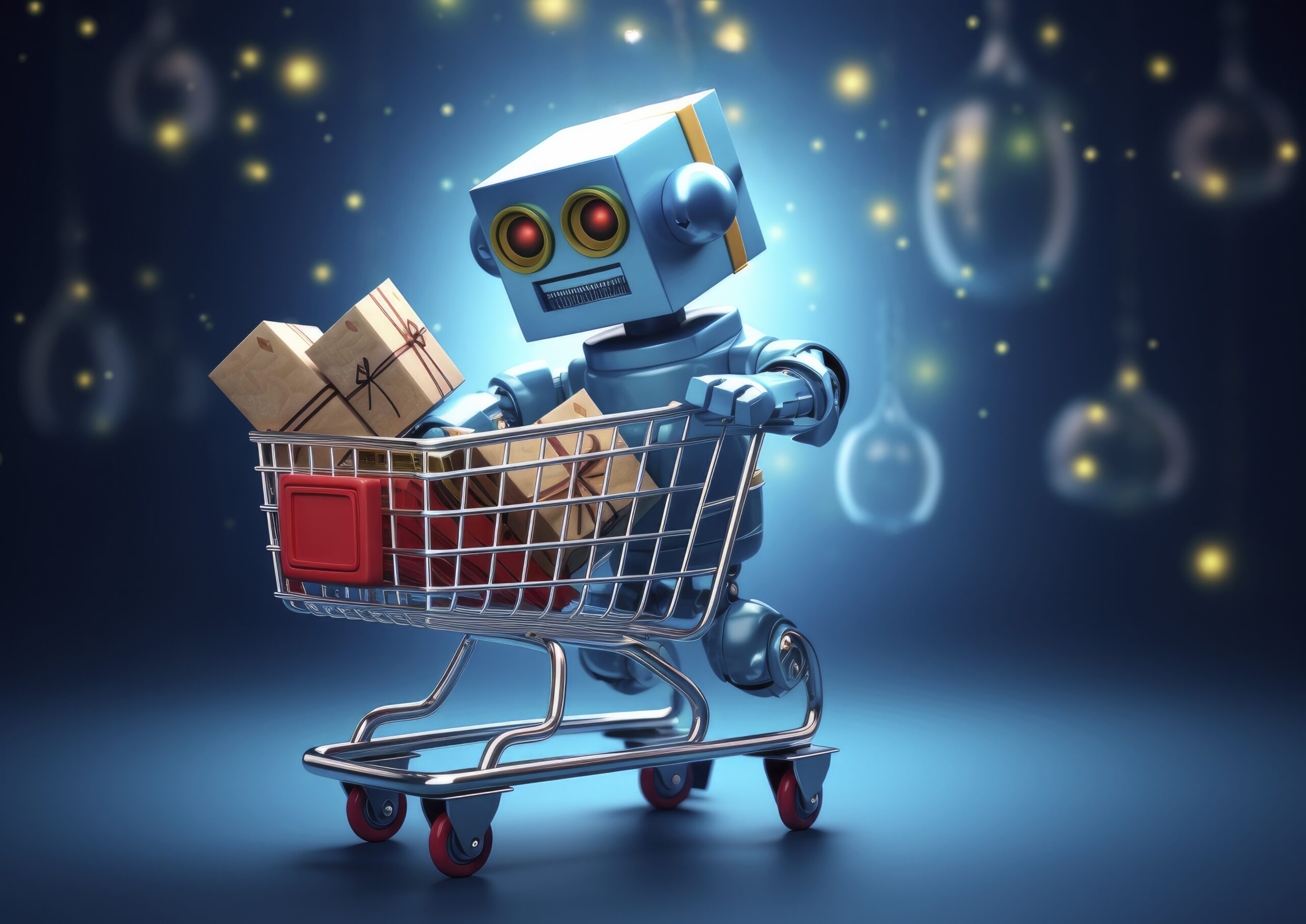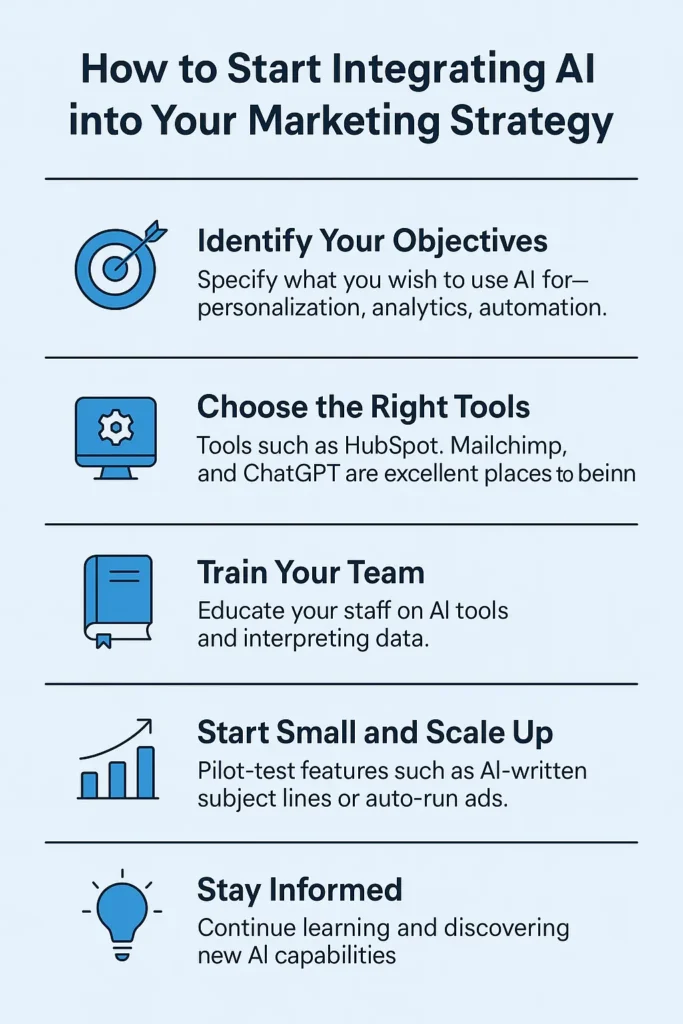How AI and Machine Learning Are Revolutionizing Modern Marketing
AI and Machine Learning are changing how businesses approach marketing and revolutionizing the way companies handle marketing. They assist brands in knowing customer behavior, serving up personalized experiences, and automating mundane tasks. As AI and Machine Learning develop further, they’re becoming indispensable tools for marketers who seek to remain competitive in the digital era. This article considers how AI and ML are redefining contemporary marketing strategies.
Key Advantages of AI in Marketing
- Personalization at Scale: AI enables brands to personalize experiences at scale through behavior, preference, and interaction history.
- Predictive Analytics: Through ML, marketers can forecast customer actions in the future, enabling more effective allocation of resources
- Intelligent Decision Making: AI software sorts through intricate data, enabling marketers to make improved choices promptly.
- Self-Service Customer Support: Chatbots can reply to customer inquiries 24/7, enhancing support and gathering valuable information.
- Better Ad Targeting: AI examines user activity and improves ad targeting for improved conversion.
Real-Life Examples of AI and Machine Learning in Action

Amazon personalizes shopping experiences and handles logistics using AI.

Spotify relies on machine learning to create personalized playlists.

Delta Air Lines utilized AI in measuring the ROI of Olympic sponsorship

Zalando utilizes AI-created content to accelerate campaigns

Coca-Cola uses AI to analyze social media sentiment to personalize campaigns.
How to Strat Integrating AI and Machine Learning Into Your Marketing Strategy

1. Identify Your Objectives
Be certain of what you wish to accomplish before getting into AI. Are you looking to:
- Personalize marketing to every customer according to behavior?
- Process data better to enhance decision-making?
- Automate tasks such as email marketing, ad placement, or customer service?
Being specific about goals allows you to target the right tools and tactics. For example, if personalization is your primary goal, you would search for AI tools that are concentrated on customer segmentation and content suggestion.
2. Choose the Right Tools
Once you know your goals, choose tools that fit those needs:
- HubSpot: Ideal for AI-powered customer relationship management (CRM), email personalization, and lead scoring.
- Mailchimp: Provides AI features for subject line creation, send-time optimization, and audience segmentation.
- Chat GPT: Effective for generating content, product description writing, ad copy generation, or offering customer support scripts.
Selecting the proper tools enables you to prevent wasting your time or money on platforms not aligned with your strategy.
3.Train Your Team
Technology is only effective when people know how to use it. Train your team to:
How to effectively utilize AI tools.
- How to interpret the insights or recommendations of AI.
- How to know when to trust AI and when judgment is still necessary.
As an example, marketing personnel should learn how to interpret data dashboards, interpret AI recommendations, and tweak campaigns according to real-time analytic
4. Start Small and Scale up
Don‘t try to revolutionize your whole marketing process using AI in one night. Start with a few pilot initiatives:
- Experiment with AI-driven email subject lines and track open rates.
- Implement chatbots for customer support and track satisfaction.
- Experiment with AI-powered ad targeting and monitor performance.
After you observe results and build confidence, extend the application of AI to other aspects of your marketing.
5. Stay Informed
AI is a fast-developing area. There are new tools, methods, and trends coming up every now and then. Catch up with:
- Following industry blogs and news.
- Attending webinars or online classes.
- Joining AI marketing forums or groups.
Keeping
yourself updated prevents you from lagging behind your competition and maximizing the use of AI capabilities as they expand.
Challenges and Ethical Considerations in AI and Machine Learning
AI integration and machine learning in marketing is strong but needs to be responsibly utilized. Data privacy, transparency, and bias in algorithms are top issues.
Ensure that you have permission to gather data, employ varied sets of data to train your instruments, and always incorporate human monitoring.
Balance automation with individual interaction to preserve customer trust.
Conclusion
AI and ML are transforming the world of marketing by turning strategies more intelligent, responsive, and efficient. They equip marketers with the capabilities to provide customized experiences, streamline campaigns, and make decisions based on data.
Ready to get started? Check out our Beginner’s Guide to Marketing Automation or reach out to us to see AI integration and machine learning in marketing and how AI can supercharge your marketing efforts.